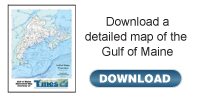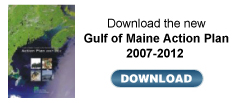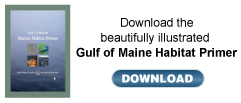Low Carbon Energy: A Roadmap, by Christopher Flavin, Worldwatch Report 178 is available from the Worldwatch Institute, www.worldwatch.org A 50-page report prepared by the president of Worldwatch Institute details the road to low-carbon energy, through explanations of current carbon emissions, alternatives to carbon-producing technologies - both low- and high-tech, today's and tomorrow's technologies and the political and economic frameworks needed to implement them. ISBN 978-1-878071-87-3 (2008)
The first version of the Indicator Reporting Tool is available. It uses novel technologies to bring together data from Gulfwatch, the Gulf of Maine Ocean Observing System (GoMOOS) and Mussel Watch. Point-source data and eelgrass extent also are available. The tool effort was started in 2006 by The Gulf of Maine Council’s Ecosystem Indicator Partnership (ESIP) to provide up-to-date contaminant and nutrient data for the Gulf of Maine. The project is funded through a grant from GeoConnections, a Canadian initiative to use technology to deliver scientific information to resource managers, community leaders and citizens. ESIP is involved in follow-up projects to bring in more indicator data and improve graphing and data functions. [View the new tool and ESIP’s current Monitoring Map]
The assessment report entitled From Impacts to Adaptation: Canada in a Changing Climate 2007 discusses current and future risks and opportunities that climate change presents to Canada, with a focus on human and managed systems. The current state of understanding is presented, and key knowledge gaps are identified. [more information]
The New Hampshire Department of Environmental Services has a new newsletter, The Critical Edge, available to its Enews subscribers. An offering of the department’s Shoreland Protection Program, the newsletter will give monthly updates on the status of changes to the Comprehensive Shoreland Protection Act during the summer of 2008. It then will become a quarterly newsletter. [more information]
|








